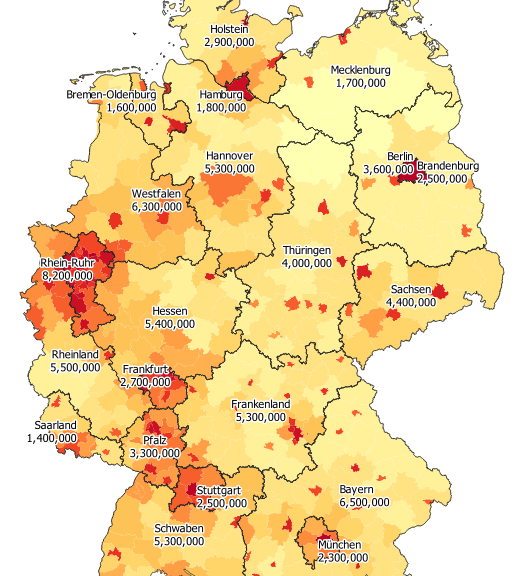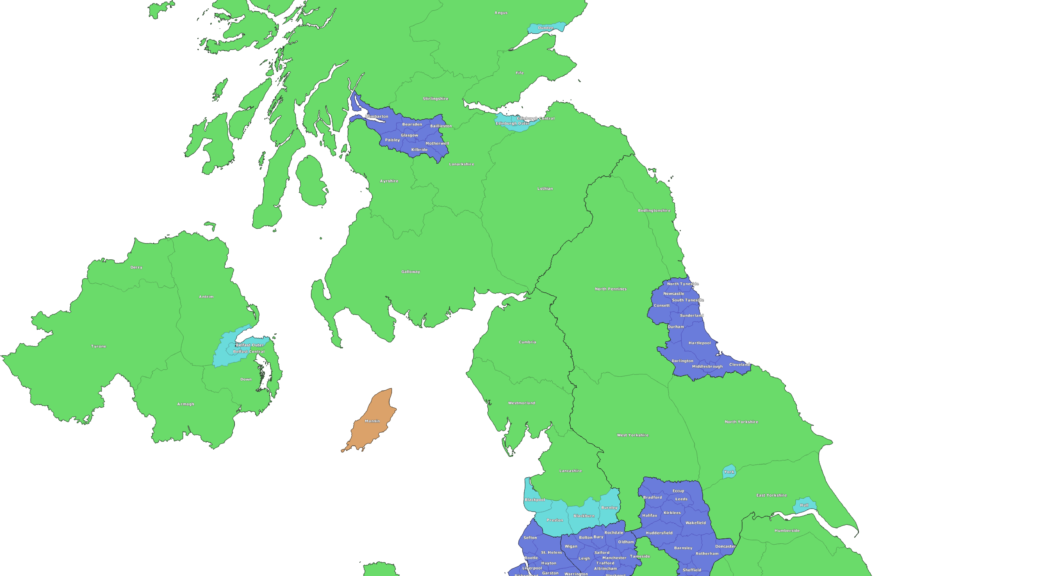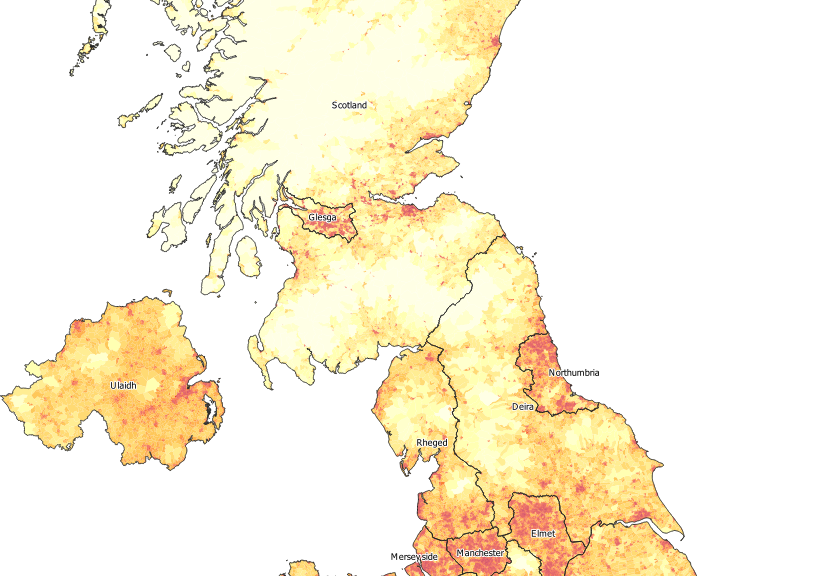
Canadian Provinces & German Länder
This post follows on from Optimising Federalism.
Once a country is already federal, it is much more difficult to make any sort of changes to either the structure of government or the states themselves – this is part of the point of federalism after all. It is still worth considering what changes could be made, whether they would be a desirable way of solving certain issues, and whether they would be able to garner enough support to be achievable.
As with the UK in the previous posts, I shall therefore detail a possible structure for Canada and Germany that follows the same principles. This is not intended to be a serious policy proposal, as such a change would need broad support from the populations affected, as well as buy-in from the existing state governments in order to make the necessary border adjustments and constitutional amendments. This is in contrast to the UK, which would simply need a government so inclined, and a population that wasn’t violently opposed to it…

